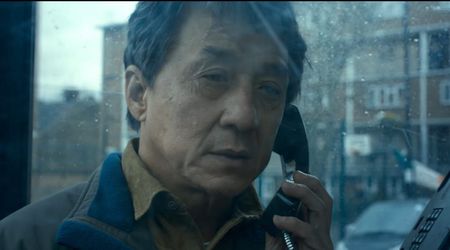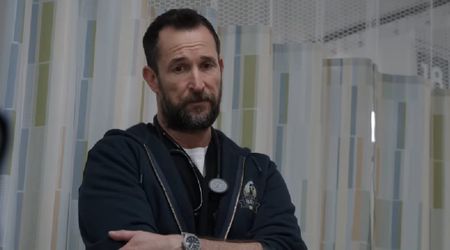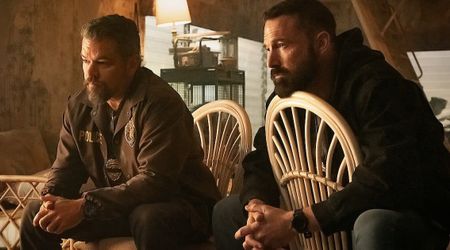Pride Month 2020: 'Surviving the Silence' reveals struggle of being closeted lesbian in the US military

For 17 years, a discriminatory policy had ruled over the US military, which prohibited qualified and proficient gay and lesbian Americans form rendering their services to the armed forces. The 'Don't Ask, Don't Tell' (DADT) policy was implemented by the Clinton Administration in 1993 and asserted that those who identified as LGBTQ+ were only allowed to serve in the military as long as they remained closeted. As a shameful part of US history, the installation of this anti-gay policy conveyed that discrimination on the basis of sexuality was condoned. In a glorious turn of events, President Barack Obama had the policy repealed in 2011, and for the first time ever gay and lesbian Americans could openly serve in the military, without fear.
The years that the DADT was in practice were especially difficult for the queer community and the gay and lesbian comrades who had been forced into silence by a homophobic military law, and yet the years before weren't exactly a walk in the park for them either. In 1992, Colonel Margarethe Cammermeyer of the Washington National Guard was honorably discharged from service after revealing four years prior during a military clearance check that she was lesbian. Her story became a television adapted movie in 1995, 'Serving in Silence', which was produced by Barbara Streisand and starred Glenn Close, who played Cammermeyer.

Colonel Patsy Thompson, Chief Nurse of the Army National Guard at the Pentagon was among those presiding over the board that dismissed Colonel Cammermeyer. The "unconstitutional" discharge (as it was later deemed by Judge Thomas Zilly of the United States District Court for the Western District of Washington) was the biggest challenge of her life and forced Colonel Thompson to rethink her own life secrets and was faced with a moral dilemma — she was a closeted lesbian herself. Although Cammermeyer's story got told, Colonel Thompson's remained in the shadows as she feared coming out would jeopardize her position up until now.
'Surviving The Silence' is a film by Cindy L Abel documenting Colonel Thompson's life as a closeted lesbian in the military and how she and her wife, Barbara Brass pulled through the brutal demands of the military for 37 years. The couple had lived in fear as Colonel Thompson rose through the ranks while hiding the fact that she was homosexual because the US military at the time abided by the long-standing policy that “homosexuality is incompatible with military service.”
"As we approach the 10th anniversary of the repeal of Don't Ask, Don't Tell later this year, it is timely to share the stories of these three incredible women with audiences in 2020," said Abel in a press release. "Younger people don't know of Cammermeyer's sacrifice, and we are thrilled to be the first film to reveal how Thompson's quiet leadership behind the scenes lead to the eventual reinstatement of Cammermeyer and a historic change in US military policy towards gays and lesbians."

The film is a heart-breaking account of all the struggles that Colonel Thompon and her wife, Barbara Brass were faced with in a desperate attempt to shield their love from the eyes of the military. It is the main narrative within 'Surviving the Silence', where the couple share how they hid their relationship, protected their love while preserving Colonel Thompson's career, and maintained a long-distance relationship by communicating via code. Somehow, they managed to make it work and to this day are as in love as they were all those years ago, if not more. Colonel Thompson retired from the military in 1994, with full honors and benefits.
The couple married in 2008, as soon as America had legalized same-sex marriages and when the DADT policy was repealed by the Obama Administration, they rejoiced with the rest of the country. However, despite the major developments the couple has had their qualms and remained acutely cautious and wary of society. In an interview with the Sacramento Bee, the couple divulged that it was only in 2013 that they came out to their close friends and family. Colonel Thompson had grown up the daughter of religious and socially conservative parents in a small town in North Carolina, while Brass was the daughter of Holocaust survivors from California and is about 20 years younger than her partner,
Colonel Thompson told the Sacramento Bee that she “knew early on I was different from other girls. But I didn’t understand it,” that is until she kissed another woman in nursing school, in the 1950s. When she applied for the Air Force Nurse Corps in 1956, she checked the 'No' option on the application besides a question about her being gay. “I had decided I wanted the military as a career path and felt that I should have that right,” she told the publication. “I knew that homosexuality was considered a mental illness at that time, and I knew I wasn’t mentally ill. So I lied.”

'Surviving the Silence' also features Colonel Cammermeyer who recalls her experiences with Colonel Thompson on-camera for the very first time. Also featured are attorney Mary Newcombe who represented Colonel Cammermeyer in 1994 and credits Colonel Thomson for her reinstatement, and Secretary of the Army, Eric Fanning, the first openly LGBTQ head of a US military branch who provides historical context and contemporary commentary. "Many films show younger people struggling to come out of the closet. SURVIVING THE SILENCE shares the stories of women who do so much later in life and emerge from the shadows to become vibrant community leaders and activists," said Abel.
The documentary film, as announced by Atlantis Moon and 13th Gen, will have its Virtual World Premiere just in time for LGBT Pride Month, on June 1 at Ashland Independent Film Festival. Watch the film's trailer on the 'Surviving the Silence' official website.










